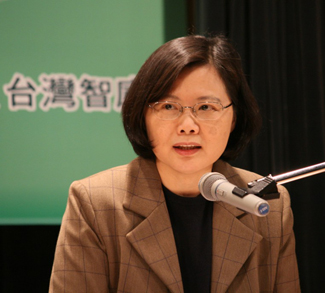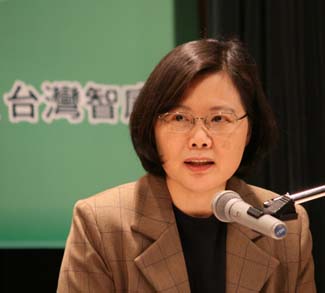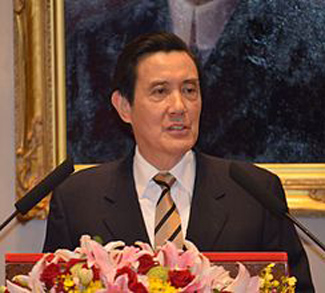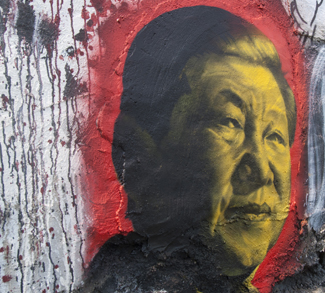This week’s polls are a coming out party for Taiwan’s hard-earned democratic system. Just 20 years removed from its first presidential elections, the island is anticipating another peaceful political transition, though this time without the dramatic electoral splits, cross-Strait coercion, or last-minute attempted murders that helped steer past results. You might even say that everything is normal.
A sense of normalcy is a victory unto itself given the long and winding path that led to these elections. The island was controlled by the Empire of Japan from 1895-1945, and then the Chinese Nationalist Party (KMT) after it lost the Chinese civil war in 1949 and established a sojourning Republic of China (ROC) government in Taiwan. Thirty-eight years of Martial Law later, the aging remnants of the ROC shelved their dream of taking back the mainland and the process of democratization was initiated in earnest.
As we approach Saturday’s polls, the old struggles of freedom vs. tyranny and Taiwanese vs. Mainlander have faded away, replaced with far more prosaic concerns like economic growth and foreign ownership. China of course looms large in both matters. China is Taiwan’s largest trading partner and – by viewing the island as a ‘renegade province’ to be conquered if necessary – its biggest threat.
Democratic Progressive Party on the Rise
This election is the opposition Democratic Progressive Party’s (DPP) to lose. A final pre-election poll conducted by the Cross-Strait Policy Association put DPP presidential candidate Tsai Ing-wen at 45.2% support, far ahead of the KMT’s Eric Chu who was backed by just 16.3% of respondents. A different poll sponsored by the KMT reflected a much smaller gap, with 39.2% and 31.2% support respectively.
The presidency isn’t the only prize up for grabs this week. The composition of Taiwan’s parliament, or Legislative Yuan, will also be determined at the ballot box. It’s a near certainty that the Legislative Yuan will pass from KMT control for the first time in Taiwan’s history, and whether or not the DPP ends up with a majority is down to the performance of smaller parties, which themselves have emerged as a growing force in these elections.
The DPP’s charmed position is largely the result of voter blowback from outgoing President Ma Ying-jeou’s unpopular second-term policies. President Ma’s two terms saw peace and stability return to cross-Strait relations, but his opaque style of governance – the ‘black box’ – bred concerns over whether Taiwan was sacrificing too much of its own sovereignty in pursuit of a closer economic relationship with China. These concerns boiled over in the spring of 2014, when students occupied the parliament building after a cross-Strait services trade agreement was pushed through without a promised clause-by-clause review. The occupation triggered a wave of student activism, which came to be known as the Sunflower Movement. It has since evolved into the political realm, with several prominent Sunflower organizers joining together to form the New Power Party (NPP).
Further damaging the KMT’s cause is the fact that President Ma’s push for cross-Strait economic liberalization has yet to produce many tangible benefits in the lives of working-class Taiwanese. The economy grew at a sluggish 1% in 2015 and Taiwan’s already low wages have remained stagnant. Through 2015, the economic dividend expected from a closer relationship to China has yet to materialize.
The collapse of the KMT’s support base has allowed Tsai Ing-wen to advance a vague policy platform with regards to cross-Strait relations. The vagueness is likely by design in an attempt to appease the DPP’s nativist base and harvest centrist voters who are disenchanted with the KMT but not necessarily anti-China. For example, though Tsai has been a vocal supporter of maintaining the status quo of cross-Strait relations, she has avoided endorsing the 1992 consensus of ‘one China, two interpretations’ – arguably the symbolic bedrock that the status quo is built on.
The Geopolitical Impact of a DPP Victory
Any election in Taiwan will inevitably affect cross-Strait relations and, by extension, US-China relations as well. How China responds to the result is a key factor. And though it’s difficult to accurately forecast the behavior of a government controlled by a handful of individuals, there are a few key aspects to note about this election.
For one, although Tsai Ing-wen’s Democratic Progressive Party is far from Beijing’s preferred negotiating partner, it’s not a foregone conclusion that a DPP victory will bring about an automatic return to open hostilities. The DPP has gravitated towards the center of the political spectrum over the past decade, and former president Chen Shui-bian’s old diplomatic fire-starters of UN membership and a referendum on Taiwan’s status are notably absent from Tsai’s platform. For its part, the DPP under Tsai seems to be attempting to assure Beijing that it won’t be rocking the boat if it comes to power.
Beijing has also adopted a cautious approach in the lead-up to elections, one that contrasts starkly with the missile tests of 1996 and Zhu Rongji’s pledge to ‘shed blood’ in 2000. The circumspection is calculated. Past moves to bully the Taiwanese electorate into voting for a pro-China candidate have generally produced the opposite effect. This helps explain the gentle, almost poetic New Year entreaty to the Taiwanese public that came from the Taiwan Affairs Office’s Zhang Zhijun to, “not wait until the road light has been extinguished before we feel its brightness.”
Both sides will adopt a wait-and-see approach to their post-election interactions. Tsai’s already moderate position will be further moderated once her party has been safely elected, and Beijing will have a partner that’s willing to operate within the symbolic and substantive limits of the status quo.
That’s the prevailing theory, at least. Yet even if the status quo is safe at the highest levels, it faces a grassroots challenge from the generational power shift currently unfolding in Taiwan.
The cultural and political legacy of the Republic of China was transplanted onto Taiwan by a generation that is now fading from political prominence. Their children grew up in Taiwan, only hearing of civil war and ancestral homelands second-hand; their grandchildren are even further removed. These cultural links between Taiwan and China were supposed to be refreshed and reinforced by the cultural, tourist, and economic linkages promoted by the Ma administration. In fact the opposite turned out to be true – the more that Taiwanese people were exposed to the mainland, the more different they felt.
There’s a gap slowly widening in the Taiwanese electorate, between an older generation that still culturally identifies with China and a younger generation that has only ever known a free and independent Taiwan. And like in all things – time favors the young.
This all begs an uncomfortable question for the Chinese authorities: Is there a hard limit on the peaceful evolution of cross-Strait relations? Beijing has been playing the long game, slowly deepening cultural and economic links. The assumption all along has been that this will bring about peaceful reunification eventually, if anything because the Taiwanese people will be left with no other tenable economic choice. But the way that Ma Ying-jeou’s second term played out will undoubtedly give rise to doubts over whether the Taiwanese government will ever decide it’s the ‘right time’ to start political negotiations. This unfavorable race against time is mirrored by an inverse phenomenon on the military level: the longer China waits, the less of a qualitative advantage is enjoyed by the US Navy, Taiwan’s presumed defender in the event of an armed conflict.
Taken together these considerations could induce a policy shift in Beijing. In fact, one might already be underway in the apparent doom of the ‘each with their own interpretation’ qualifier in the 1992 consensus.
Conclusion
Outside observers are sometimes struck by how little high politics plays into Taiwanese elections, which is surprising to them given the peril one presumes from thousands of short-range missiles aimed at your home. This election is no different. On the surface it’s less about Taiwan’s international status or its relationship with the superpowers, and more about jobs, housing, the environment, and whether a male parliamentarian ought to have hair that’s ‘longer than a woman’s.’
How much more normal could a democracy possibly be?




